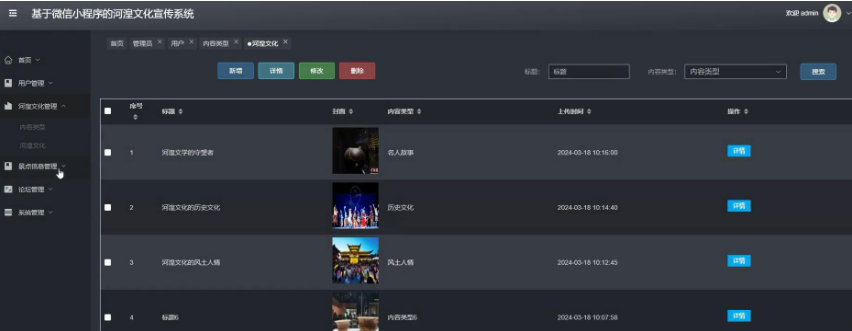- Cursor黑科技:AI编程实战
引言AI编程工具的崛起与Cursor的定位Cursor的核心功能概述(代码生成、补全、对话式调试等)目标读者:开发者、技术团队、AI工具探索者核心功能解析智能代码生成基于自然语言描述生成代码(如“实现一个Python快速排序”)多语言支持(Python、JavaScript、Go等)示例对比代码补全与优化实时上下文感知补全(比传统IDE更精准)代码重构建议(如性能优化、冗余删除)对话式交互调试通过
- 探秘QuickFIX/J:高效金融交易的FIX协议引擎
谢忻含Norma
探秘QuickFIX/J:高效金融交易的FIX协议引擎项目地址:https://gitcode.com/gh_mirrors/qu/quickfixj在金融交易领域,FIX(FinancialInformationeXchange)协议是不可或缺的标准,用于实时电子交换证券交易信息。而QuickFIX/J,作为这一协议的100%纯Java开源实现,为开发者提供了一个强大且全面的消息引擎。本文将带你
- Java创建型模式---单例模式
hqxstudying
java设计模式数据结构代码规范
单例模式基础概念单例模式是一种创建型设计模式,其核心思想是确保一个类仅有一个实例,并提供一个全局访问点来获取这个实例。在Java中实现单例模式主要有以下关键点:私有构造函数-防止外部通过new关键字创建实例静态实例变量-类内部持有唯一实例的引用静态访问方法-提供全局访问该实例的入口单例模式的几种实现方式1.饿汉式(线程安全)饿汉式是最简单的实现方式,在类加载时就创建实例:publicclassEa
- Java IO相关技术小结
William一直在路上
java
JavaIO(输入/输出)相关技术一、JavaIO基础概念数据流方向输入流(InputStream/Reader):从数据源(文件、网络、内存)读取数据到程序。输出流(OutputStream/Writer):从程序写入数据到目标位置。数据类型字节流(ByteStream):以字节为单位处理数据(InputStream/OutputStream),适用于二进制文件(图片、视频)。字符流(Chara
- 【1】确认安装 Node.js 和 npm版本号
搭建前端项目时需要安装Node.js和npm,主要是因为它们提供了一些重要的功能和工具,帮助开发者高效地开发、构建和管理项目。一、具体原因如下:Node.js:JavaScript运行环境Node.js是一个基于ChromeV8引擎的JavaScript运行时,可以在服务器端运行JavaScript代码。它使得JavaScript不仅限于浏览器中运行,还能在本地环境中运行。npm:包管理工具npm
- SpringBoot+MySQL旅游资源管理系统Java源码
幽络源小助理
springbootvue.js后端springjava
概述基于SpringBoot+MySQL开发的旅游资源管理系统完整源码,该系统功能完善,包含从景点管理到路线推荐的全流程解决方案,采用主流技术栈开发,代码规范易于二次开发,是学习SpringBoot项目实战的优秀范例。主要内容前台功能展示系统前台设计简洁实用,主要包含以下核心功能模块:导航菜单:首页、在线留言、公告消息、景点资讯、景点信息、酒店信息、个人中心搜索功能:支持关键词搜索旅游景点和酒店信
- BM6 判断链表中是否有环(牛客)
杰克尼
数据结构与算法(Java牛客面试刷题)链表算法数据结构
题目链接判断链表中是否有环_牛客题霸_牛客网题目解题思路法一哈希表(使用HashSet存储出现的指针,如果在此出现说明存在环)法二快慢指针(若快指针追上慢指针,说明存在环)代码法一哈希表importjava.util.*;/***Definitionforsingly-linkedlist.*classListNode{*intval;*ListNodenext;*ListNode(intx){*
- Redission实现的分布式锁的可重入性
俏布斯
redisredis
Redisson分布式锁在Redis中存储可重入状态所使用的Hash结构,并通过示例说明。核心数据结构Key:锁的名称。例如:"myLock"。数据类型:Hash(RedisHSET/HGET/HINCRBY操作的对象)。HashField(字段名):客户端唯一标识符。格式通常为:UUID:threadId。UUID:生成Redisson客户端实例时创建的一个全局唯一ID(一个JVM进程一个)。t
- OneCode图生代码技术深度解析:从可视化设计到注解驱动实现的全链路架构
低代码老李
软件行业低代码领域设计架构低代码人工智能
引言:重新定义开发范式的图生代码技术在现代软件开发领域,可视化编程与代码生成技术的融合正引领着一场开发效率的革命。OneCode平台的图生代码技术通过CodeBeeIDE实现了设计与开发的无缝衔接,彻底改变了传统的"设计→标注→编码"串行工作流。本文将深入剖析OneCode图生代码技术的底层实现原理,通过管理端首页的设计与代码生成案例,全面展示从像素级UI设计到可执行Java代码的完整转换过程,并
- OneCode图表组件深度解析:注解驱动的Java可视化方案
低代码老李
领域设计低代码软件行业java开发语言
在数据驱动决策的时代,企业级应用对可视化的需求日益复杂。OneCode作为专注于企业级开发的Java框架,其可视化引擎通过创新的设计理念和技术实现,为开发者带来了截然不同的图表开发体验。本文将深入剖析OneCode在可视化领域的五大独特优势。一、注解驱动的零前端代码开发模式OneCode彻底颠覆了传统图表开发需要编写JavaScript的模式,创新性地将所有图表配置通过Java注解完成:@FCha
- 【架构设计(二)】高可用、高并发的 Java 架构设计
架构学院
Java成神之路-架构师进阶java架构开发语言
【架构设计(二)】高可用、高并发的Java架构设计在互联网业务爆发式增长的今天,高可用和高并发已成为Java系统架构设计的核心目标。本文将围绕负载均衡与高可用架构、缓存设计与优化、数据库读写分离与分库分表三大关键领域,深入剖析其原理,并结合完整的代码示例,帮助开发者构建稳定高效的系统架构。无套路、关注即可领。持续更新中关注公众号:搜【架构研究站】回复:资料领取,即可获取全部面试题以及1000+份学
- 【ESP32设备通信】-ESP32之间LoRa通信(基于SX1276)
视觉与物联智能
物联网全栈开发实战ESP32单片机嵌入式硬件物联网LoRa无线通信
ESP32之间LoRa通信(基于SX1276)文章目录ESP32之间LoRa通信(基于SX1276)1、SX1276LoRa模块介绍2、硬件准备与接线3、代码实现3.1发送端代码实现3.2接收端代码实现在前面的文章中,我们实例了SX1278的LoRa通信。在本文中,我们将使用SX1276模块作为LoRa通信模块,实现两个ESP32设备之间数据通信。1、SX1276LoRa模块介绍SX1276LoR
- alpine linux构建jdk基础镜像
alpine能够如此小巧是因为它没有集成一些普通的Linux库,比如跑Java应用必须依赖的glibc相关的包,alpinelinux构建oraclejdk时,需要先安装一些依赖库,oracle官网下载jre即可,无需下载jdk,否则构建的基础镜像过大,以下为DockerfileFROMalpine:3.18.5ADDjdk.tar.gz/usr/local/jdk/COPYlocale.md/u
- Python-GUI-wxpython简介
kobe_OKOK_
python应用pythongui
1GUI(GraphicalUserInterface)图形用户界面1.1创建应用程序两个基本对象应用程序对象:管理主事件循坏,是wxpython的动力,如果没有,wxpython将不能执行顶级窗口对象:用于管理最重要的数据,控制并呈现给客户1.1.1创建一个wx.App的子类定义这个子类在定义的子类中写一个OnInit()初始化方法在程序的主要部分创建这个类的一个实例调用应用程序的MainLoo
- 手写 Vue 中虚拟 DOM 到真实 DOM 的完整过程
目录一、虚拟DOM的核心概念二、虚拟DOM到真实DOM的流程三、手写虚拟DOM到真实DOM的实现1.定义虚拟DOM的结构(VNode)2.创建虚拟DOM转真实DOM的函数3.挂载虚拟DOM到页面4.更新虚拟DOM的过程(Diff算法简化版)四、完整示例:虚拟DOM到真实DOM的生命周期五、总结一、虚拟DOM的核心概念虚拟DOM是用JavaScript对象(VNode)模拟真实DOM结构的轻量级抽象
- Python类的基础与高级用法详解
在Python中,类(Class)是面向对象编程(OOP)的核心概念,用于创建对象的蓝图。它定义了对象的属性和行为,支持代码复用、封装、继承和多态。接下来,从多个维度详细解释类的核心概念:一、类的基本结构classMyClass: #类变量(所有实例共享) class_variable="SharedData" #构造方法(初始化实例属性) def__init__(self,name):
- C++字符串std::string
大胡子的艾娃
C++高级编程STLstringC++字符转换
一、std::string的使用STL知识点思维导图:https://download.csdn.net/download/qq_43148810/12133484二、字符转换1、string(多字符)和wstring(宽字符、Uniocde编码)都是模板类basic_string类的实例化usingstring=basic_string,allocator>;usingwstring=basic
- Python训练营-Day3
DAY3列表、循环和判断语句题目1:列表的基础操作题目:1.创建一个包含三个字符串元素的列表tech_list,元素分别为“Python”,“Java”,“Go”。2.获取列表中的第一个元素,并将其存储在变量first_tech中。3.向tech_list的末尾添加一个新的字符串元素“JavaScript”。4.修改tech_list中的第二个元素(索引为1),将其从“Java”更改为“Ruby”
- Rust凤舞、月光、考古、航母、扫雷、游戏算法开发全攻略
KENYCHEN奉孝
Rust开发语言rust游戏引擎游戏程序
Rust实现凤舞游戏以下是基于Rust实现凤舞游戏(类似音乐节奏游戏)的100个实例框架,涵盖核心模块、功能扩展和优化技巧。每个示例均提供代码片段和设计思路。基础框架搭建usebevy::prelude::*;fnmain(){App::new().add_plugins(DefaultPlugins).add_systems(Startup,setup_game).add_systems(Upd
- 遗传算法Matlab代码实现及算法函数封装
文章目录前言一、遗传算法介绍二、遗传算法算子1.种群初始化1.1二进制数编码1.2浮点数编码1.3小结2.选择算子3.交叉算子4.变异算子5.小结三、算法实例1.例一2.例二3.例三4.小结四、算法函数封装1.示例一2.示例二3.示例三五、参考文献前言遗传算法(GA)作为求解单目标优化问题的有效算法,自提出以来,便被广泛采用。该算法主要是模仿达尔文进化论,通过种群不断的进行自然选择、繁衍交叉变异,
- python+uniapp基于微信小程序的河湟文化宣传系统nodejs+java
文章目录具体实现截图本项目源码获取详细视频演示:文章底部获取博主联系方式!!!!本系统开发思路进度安排及各阶段主要任务java类核心代码部分展示主要参考文献:源码获取/详细视频演示##项目介绍摘要随着互联网技术的飞速发展和移动互联网的
- 51单片机:电脑闹钟项目实战课程实例
王大帅爱钢炼
本文还有配套的精品资源,点击获取简介:51单片机是微控制器领域的基石,尤其适用于教学和初学者的实践。本课程实例聚焦于创建一个带音乐功能的电脑闹钟,涉及硬件设计、软件编程和实际应用。学习者将通过这个实例深入理解51单片机的工作原理,掌握时钟电路和音乐播放模块的使用,并学习如何编写程序来控制这些硬件组件。1.51单片机基础概念与应用1.151单片机的概述51单片机,也被称为8051微控制器,是一种经典
- JAVA面试全过程
由于本人最近又在面试,想记录一下,可能会给你提供一下帮助。一、简历简历里面需要包含的内容应该是学历,自己的技术栈,然后自己做过的一些项目。简历不需要太长,两页纸即可。里面应该重点写你使用过的一些框架,自己做的一些项目,以及自己的收获,简练第一。一般面试官不会有很多的耐心,看你的项目详细描述,所以尽量简洁明了即可。二、简历投递投递的方式有几种吧,相信大家也都知道。一般在程序员的垂直招聘网站投递即可,
- java练习3
随机生成20个数字(随机种子)分别使用冒泡排序、二叉树排序、插入排序进行排序并输出最终结果以及三种排序使用的时间packagea01_第一次练习.a03_排序;importjava.time.Duration;importjava.time.LocalDateTime;importjava.util.TreeSet;publicclassTest{publicstaticvoidmain(Stri
- 尚硅谷-javaweb笔记记录
java成长之旅
javaweb
Javaweb笔记网页三组成:内容html,表现css,行为js。html,css,javascriptstyle标签定义css样式代码(只能在一个页面公用css样式)css文件id选择器:#id001{}#id002{}使用:标签1class选择器:.class001{}使用:类选择器组合选择器:选择器1,选择器2…{属性:值;}js里编写或者写完了再引入进去。且运算&&:当表达式为全真,返回最
- Gradle中如何设定使用JAVA_HOME以外的JRE版本
WlzSnail
Jenkinsjenkins
前言:由于DavinciTeam需要运行在JRE8,其运行环境是基于Gradle,而Jenkins和Tomcat是运行在JRE8以上的版本导致Gradle需要单独的JRE运行环境。解决方案:通过修改Gradle的配置使其运行环境运行在JRE8同时其它软件运行在JAVA_HOME设定的JRE版本中。一、首先在安装的Gradle根目录下创建gradle.properties二、在gradle.prop
- c++第九天--模版
函数模版:定义函数模版的语法格式:templatetemplateTadd(Ta,Tb){returna+b;}函数模版不会减少可执行程序的大小,因为编译器会根据调用时的参数类型进行相应的实例化,就是用类型参数替换模版中的模版参数,生成具体类型的函数,模版是为了减少开发的工作量,进而提高可维护性。实例化可分为隐式实例化与显式实例化。①隐式实例化隐式实例化是根据函数调用时传入的参数的数据类型确定模板
- Android Binder与AIDL与Service使用案例及分析
曹小满2579
Android基础androidbinderAndroidIPC
水一篇以前写的文章Binder是Android内置的一种比较高效的跨进程机制,它很复杂,也很好用,可以让我们像调用普通方法那样完成跨进程式方法调用和数据传递。我们现在只需要知道它比较复杂以及怎么使用即可。ALDL全名AndroidinterfaceDefinitionLanguage,是Android官方提供的简化Binder开发的工具,适用于Java、Kotlin开发。所以很明显了,ALDL是小
- javase实操(二)-酒店管理系统
付朝鲜
javajava
一、题目使用二维数组实现酒店管理系统。功能如下:1.查看酒店所有房间的状态2.预定房间3.退房4.退出系统二、程序1.Hotel.javapackageHotel;publicclassHotel{privateintid;privateStringstandard;privateStringstatus;publicHotel(){}publicHotel(intid,Stringstandar
- Express + winston + winston-daily-rotate-file 实现日志管理
半个烧饼不加肉
Node.jsexpress
大体思路通过winston生成日志实例,可实现代码中关键位置输出日志,和错误日志的统一管理,通过winston-daily-rotate-file实现日志分级储存。一、日志工具类实现importwinstonfrom'winston';importDailyRotateFilefrom'winston-daily-rotate-file';//1.定义日志级别类型typeLogLevel='err
- 枚举的构造函数中抛出异常会怎样
bylijinnan
javaenum单例
首先从使用enum实现单例说起。
为什么要用enum来实现单例?
这篇文章(
http://javarevisited.blogspot.sg/2012/07/why-enum-singleton-are-better-in-java.html)阐述了三个理由:
1.enum单例简单、容易,只需几行代码:
public enum Singleton {
INSTANCE;
- CMake 教程
aigo
C++
转自:http://xiang.lf.blog.163.com/blog/static/127733322201481114456136/
CMake是一个跨平台的程序构建工具,比如起自己编写Makefile方便很多。
介绍:http://baike.baidu.com/view/1126160.htm
本文件不介绍CMake的基本语法,下面是篇不错的入门教程:
http:
- cvc-complex-type.2.3: Element 'beans' cannot have character
Cb123456
springWebgis
cvc-complex-type.2.3: Element 'beans' cannot have character
Line 33 in XML document from ServletContext resource [/WEB-INF/backend-servlet.xml] is i
- jquery实例:随页面滚动条滚动而自动加载内容
120153216
jquery
<script language="javascript">
$(function (){
var i = 4;$(window).bind("scroll", function (event){
//滚动条到网页头部的 高度,兼容ie,ff,chrome
var top = document.documentElement.s
- 将数据库中的数据转换成dbs文件
何必如此
sqldbs
旗正规则引擎通过数据库配置器(DataBuilder)来管理数据库,无论是Oracle,还是其他主流的数据都支持,操作方式是一样的。旗正规则引擎的数据库配置器是用于编辑数据库结构信息以及管理数据库表数据,并且可以执行SQL 语句,主要功能如下。
1)数据库生成表结构信息:
主要生成数据库配置文件(.conf文
- 在IBATIS中配置SQL语句的IN方式
357029540
ibatis
在使用IBATIS进行SQL语句配置查询时,我们一定会遇到通过IN查询的地方,在使用IN查询时我们可以有两种方式进行配置参数:String和List。具体使用方式如下:
1.String:定义一个String的参数userIds,把这个参数传入IBATIS的sql配置文件,sql语句就可以这样写:
<select id="getForms" param
- Spring3 MVC 笔记(一)
7454103
springmvcbeanRESTJSF
自从 MVC 这个概念提出来之后 struts1.X struts2.X jsf 。。。。。
这个view 层的技术一个接一个! 都用过!不敢说哪个绝对的强悍!
要看业务,和整体的设计!
最近公司要求开发个新系统!
- Timer与Spring Quartz 定时执行程序
darkranger
springbean工作quartz
有时候需要定时触发某一项任务。其实在jdk1.3,java sdk就通过java.util.Timer提供相应的功能。一个简单的例子说明如何使用,很简单: 1、第一步,我们需要建立一项任务,我们的任务需要继承java.util.TimerTask package com.test; import java.text.SimpleDateFormat; import java.util.Date;
- 大端小端转换,le32_to_cpu 和cpu_to_le32
aijuans
C语言相关
大端小端转换,le32_to_cpu 和cpu_to_le32 字节序
http://oss.org.cn/kernel-book/ldd3/ch11s04.html
小心不要假设字节序. PC 存储多字节值是低字节为先(小端为先, 因此是小端), 一些高级的平台以另一种方式(大端)
- Nginx负载均衡配置实例详解
avords
[导读] 负载均衡是我们大流量网站要做的一个东西,下面我来给大家介绍在Nginx服务器上进行负载均衡配置方法,希望对有需要的同学有所帮助哦。负载均衡先来简单了解一下什么是负载均衡,单从字面上的意思来理解就可以解 负载均衡是我们大流量网站要做的一个东西,下面我来给大家介绍在Nginx服务器上进行负载均衡配置方法,希望对有需要的同学有所帮助哦。
负载均衡
先来简单了解一下什么是负载均衡
- 乱说的
houxinyou
框架敏捷开发软件测试
从很久以前,大家就研究框架,开发方法,软件工程,好多!反正我是搞不明白!
这两天看好多人研究敏捷模型,瀑布模型!也没太搞明白.
不过感觉和程序开发语言差不多,
瀑布就是顺序,敏捷就是循环.
瀑布就是需求、分析、设计、编码、测试一步一步走下来。而敏捷就是按摸块或者说迭代做个循环,第个循环中也一样是需求、分析、设计、编码、测试一步一步走下来。
也可以把软件开发理
- 欣赏的价值——一个小故事
bijian1013
有效辅导欣赏欣赏的价值
第一次参加家长会,幼儿园的老师说:"您的儿子有多动症,在板凳上连三分钟都坐不了,你最好带他去医院看一看。" 回家的路上,儿子问她老师都说了些什么,她鼻子一酸,差点流下泪来。因为全班30位小朋友,惟有他表现最差;惟有对他,老师表现出不屑,然而她还在告诉她的儿子:"老师表扬你了,说宝宝原来在板凳上坐不了一分钟,现在能坐三分钟。其他妈妈都非常羡慕妈妈,因为全班只有宝宝
- 包冲突问题的解决方法
bingyingao
eclipsemavenexclusions包冲突
包冲突是开发过程中很常见的问题:
其表现有:
1.明明在eclipse中能够索引到某个类,运行时却报出找不到类。
2.明明在eclipse中能够索引到某个类的方法,运行时却报出找不到方法。
3.类及方法都有,以正确编译成了.class文件,在本机跑的好好的,发到测试或者正式环境就
抛如下异常:
java.lang.NoClassDefFoundError: Could not in
- 【Spark七十五】Spark Streaming整合Flume-NG三之接入log4j
bit1129
Stream
先来一段废话:
实际工作中,业务系统的日志基本上是使用Log4j写入到日志文件中的,问题的关键之处在于业务日志的格式混乱,这给对日志文件中的日志进行统计分析带来了极大的困难,或者说,基本上无法进行分析,每个人写日志的习惯不同,导致日志行的格式五花八门,最后只能通过grep来查找特定的关键词缩小范围,但是在集群环境下,每个机器去grep一遍,分析一遍,这个效率如何可想之二,大好光阴都浪费在这上面了
- sudoku solver in Haskell
bookjovi
sudokuhaskell
这几天没太多的事做,想着用函数式语言来写点实用的程序,像fib和prime之类的就不想提了(就一行代码的事),写什么程序呢?在网上闲逛时发现sudoku游戏,sudoku十几年前就知道了,学生生涯时也想过用C/Java来实现个智能求解,但到最后往往没写成,主要是用C/Java写的话会很麻烦。
现在写程序,本人总是有一种思维惯性,总是想把程序写的更紧凑,更精致,代码行数最少,所以现
- java apache ftpClient
bro_feng
java
最近使用apache的ftpclient插件实现ftp下载,遇见几个问题,做如下总结。
1. 上传阻塞,一连串的上传,其中一个就阻塞了,或是用storeFile上传时返回false。查了点资料,说是FTP有主动模式和被动模式。将传出模式修改为被动模式ftp.enterLocalPassiveMode();然后就好了。
看了网上相关介绍,对主动模式和被动模式区别还是比较的模糊,不太了解被动模
- 读《研磨设计模式》-代码笔记-工厂方法模式
bylijinnan
java设计模式
声明: 本文只为方便我个人查阅和理解,详细的分析以及源代码请移步 原作者的博客http://chjavach.iteye.com/
package design.pattern;
/*
* 工厂方法模式:使一个类的实例化延迟到子类
* 某次,我在工作不知不觉中就用到了工厂方法模式(称为模板方法模式更恰当。2012-10-29):
* 有很多不同的产品,它
- 面试记录语
chenyu19891124
招聘
或许真的在一个平台上成长成什么样,都必须靠自己去努力。有了好的平台让自己展示,就该好好努力。今天是自己单独一次去面试别人,感觉有点小紧张,说话有点打结。在面试完后写面试情况表,下笔真的好难,尤其是要对面试人的情况说明真的好难。
今天面试的是自己同事的同事,现在的这个同事要离职了,介绍了我现在这位同事以前的同事来面试。今天这位求职者面试的是配置管理,期初看了简历觉得应该很适合做配置管理,但是今天面
- Fire Workflow 1.0正式版终于发布了
comsci
工作workflowGoogle
Fire Workflow 是国内另外一款开源工作流,作者是著名的非也同志,哈哈....
官方网站是 http://www.fireflow.org
经过大家努力,Fire Workflow 1.0正式版终于发布了
正式版主要变化:
1、增加IWorkItem.jumpToEx(...)方法,取消了当前环节和目标环节必须在同一条执行线的限制,使得自由流更加自由
2、增加IT
- Python向脚本传参
daizj
python脚本传参
如果想对python脚本传参数,python中对应的argc, argv(c语言的命令行参数)是什么呢?
需要模块:sys
参数个数:len(sys.argv)
脚本名: sys.argv[0]
参数1: sys.argv[1]
参数2: sys.argv[
- 管理用户分组的命令gpasswd
dongwei_6688
passwd
NAME: gpasswd - administer the /etc/group file
SYNOPSIS:
gpasswd group
gpasswd -a user group
gpasswd -d user group
gpasswd -R group
gpasswd -r group
gpasswd [-A user,...] [-M user,...] g
- 郝斌老师数据结构课程笔记
dcj3sjt126com
数据结构与算法
<<<<<<<<<<<<<<<<<<<<<<<<<<<<<<<<<<<<<<<<<<<<<<<<<<
- yii2 cgridview加上选择框进行操作
dcj3sjt126com
GridView
页面代码
<?=Html::beginForm(['controller/bulk'],'post');?>
<?=Html::dropDownList('action','',[''=>'Mark selected as: ','c'=>'Confirmed','nc'=>'No Confirmed'],['class'=>'dropdown',])
- linux mysql
fypop
linux
enquiry mysql version in centos linux
yum list installed | grep mysql
yum -y remove mysql-libs.x86_64
enquiry mysql version in yum repositoryyum list | grep mysql oryum -y list mysql*
install mysq
- Scramble String
hcx2013
String
Given a string s1, we may represent it as a binary tree by partitioning it to two non-empty substrings recursively.
Below is one possible representation of s1 = "great":
- 跟我学Shiro目录贴
jinnianshilongnian
跟我学shiro
历经三个月左右时间,《跟我学Shiro》系列教程已经完结,暂时没有需要补充的内容,因此生成PDF版供大家下载。最近项目比较紧,没有时间解答一些疑问,暂时无法回复一些问题,很抱歉,不过可以加群(334194438/348194195)一起讨论问题。
----广告-----------------------------------------------------
- nginx日志切割并使用flume-ng收集日志
liyonghui160com
nginx的日志文件没有rotate功能。如果你不处理,日志文件将变得越来越大,还好我们可以写一个nginx日志切割脚本来自动切割日志文件。第一步就是重命名日志文件,不用担心重命名后nginx找不到日志文件而丢失日志。在你未重新打开原名字的日志文件前,nginx还是会向你重命名的文件写日志,linux是靠文件描述符而不是文件名定位文件。第二步向nginx主
- Oracle死锁解决方法
pda158
oracle
select p.spid,c.object_name,b.session_id,b.oracle_username,b.os_user_name from v$process p,v$session a, v$locked_object b,all_objects c where p.addr=a.paddr and a.process=b.process and c.object_id=b.
- java之List排序
shiguanghui
list排序
在Java Collection Framework中定义的List实现有Vector,ArrayList和LinkedList。这些集合提供了对对象组的索引访问。他们提供了元素的添加与删除支持。然而,它们并没有内置的元素排序支持。 你能够使用java.util.Collections类中的sort()方法对List元素进行排序。你既可以给方法传递
- servlet单例多线程
utopialxw
单例多线程servlet
转自http://www.cnblogs.com/yjhrem/articles/3160864.html
和 http://blog.chinaunix.net/uid-7374279-id-3687149.html
Servlet 单例多线程
Servlet如何处理多个请求访问?Servlet容器默认是采用单实例多线程的方式处理多个请求的:1.当web服务器启动的